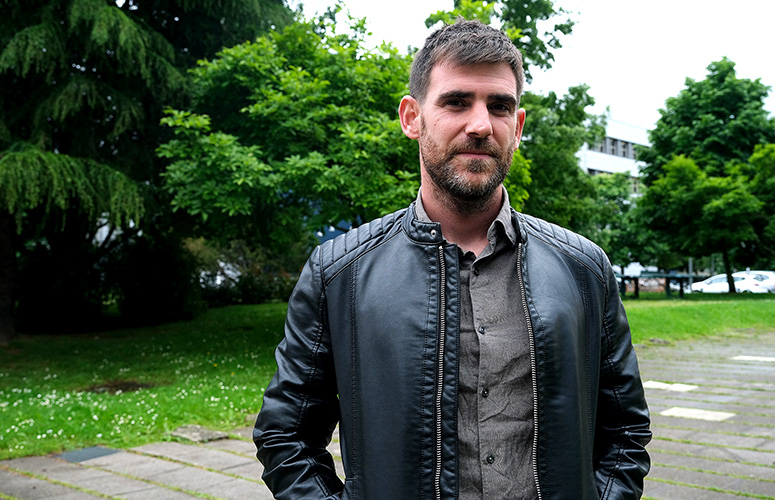According to Durkheim's theory, feedback and emotional convergence among the participants of a collective meeting are key components in collective processes and endure over time. This theory has in fact been proven by the Social Psychology Culture, Cognition and Emotion research group of the University of the Basque Country (UPV/EHU) among various runners who participated in the 2019 Korrika.
Participation in the Korrika has positive psychological effects on social well-being and collective empowerment
Durkheim's theory about the psychological influence of collective rituals on the participants holds true in the Korrika
- Research
First publication date: 17/05/2023

According to Émile Durkheim (1858-1917), a pioneering sociologist on the subject, and as can be seen today, social isolation can constitute a serious threat to health and survival, and collective rituals are essential in ensuring the cohesion and health of a society. Durkheim maintained that collective rituals that are celebrated periodically reinforce collective values and beliefs and foster social cohesion. So the individuals who participate in such rituals return to their individual lives with renewed faith in society, and energy. This sense of renewal is fostered by collective effervescence, in other words, by the emotional communion produced in the emotional interaction between people. To date, however, Durkheim's theory has been tested in very few pieces of research.
“The human being is a social being, and participation in collective rituals has many positive psychological effects, as a group and also as an individual.” This was pointed out by Jon Zabala, a member of the Social Psychology CCE research group. “According to research, participation in collective rituals promotes social integration, positively influences social beliefs, and empowers both individually (e.g., on the level of self-esteem and life satisfaction) and collectively, among other things. So it comes as no surprise that the isolation measures taken to address the COVID-19 pandemic have been associated with higher levels of anxiety and depression.
Researchers in the Department of Basic Psychological Processes and Development conclude that Durkheim's theory holds true in the Korrika. On a sample of participants in the 2019 Korrika[1], the research was conducted in three phases: before, during and after the event. To gather the data, the participants completed three online questionnaires, one for each phase.
Collective effervescence
According to the researchers, “the well-being indicators of the participants display higher levels after their participation in the Korrika than before participating in it. And in some of these indicators –for example, in the case of social integration–, this level is maintained up to six weeks after the Korrika.” Using statistical tests, the researchers also confirmed that it is the “collective effervescence” that Durkheim referred to that accounts for these positive effects. “The participants feel more integrated in the group, in their town/village and in their community, more empowered collectively and also have a more positive view of people and society,” said Zabala. On the other hand, the researchers consider that, in view of the results of other studies, it is to be expected that the predisposition of the participants to carry out actions in favour of the Basque language will continue to increase. However, that remains to be proven.
There is not much research that has corroborated Durkheim's theory in this way, and, therefore, it is an innovative work, since –among other issues– the researchers have analysed the data in three phases, which has allowed them to see the duration in time of the positive psychological effects of participating in collective rituals.
This highlights the importance of collective rituals for mental health, both on the scale of the Korrika and smaller events, such as dinners with friends, or family gatherings, as they promote social integration. Through them, “we strengthen our confidence in our groups of reference and our social values, we feel appreciated and part of a group, which motivates us to take better care of ourselves and everyone else. All of this gives meaning to our lives, since it helps us to position ourselves in the world”. So Zabala believes that it is no coincidence that psychological problems should increase during the pandemic: “Collective participation is one of the factors to be considered in health prevention programmes.”
Additional information
This research is part of Jon Zabala's PhD thesis. He is writing it up in the Department of Basic Psychological Processes and Development under the supervision of Professor Aitziber Pascual-Jimeno and co-supervisor and Professor Susana Conejero-López.
[1] The most important mass event held in the Basque Country in favour of euskara (the Basque language).
Bibliographic reference
- Korrika, running in collective effervescence through the Basque Country: A model of collective processes and their positive psychological effects
- Frontiers in Psychology
- DOI: 10.3389/fpsyg.2023.1095763

